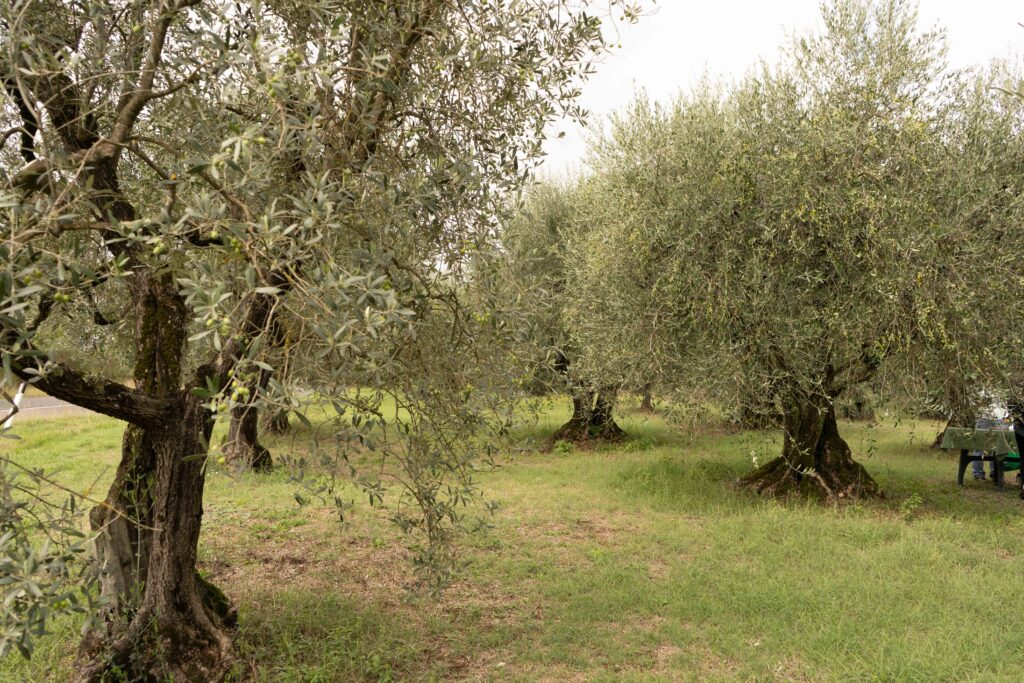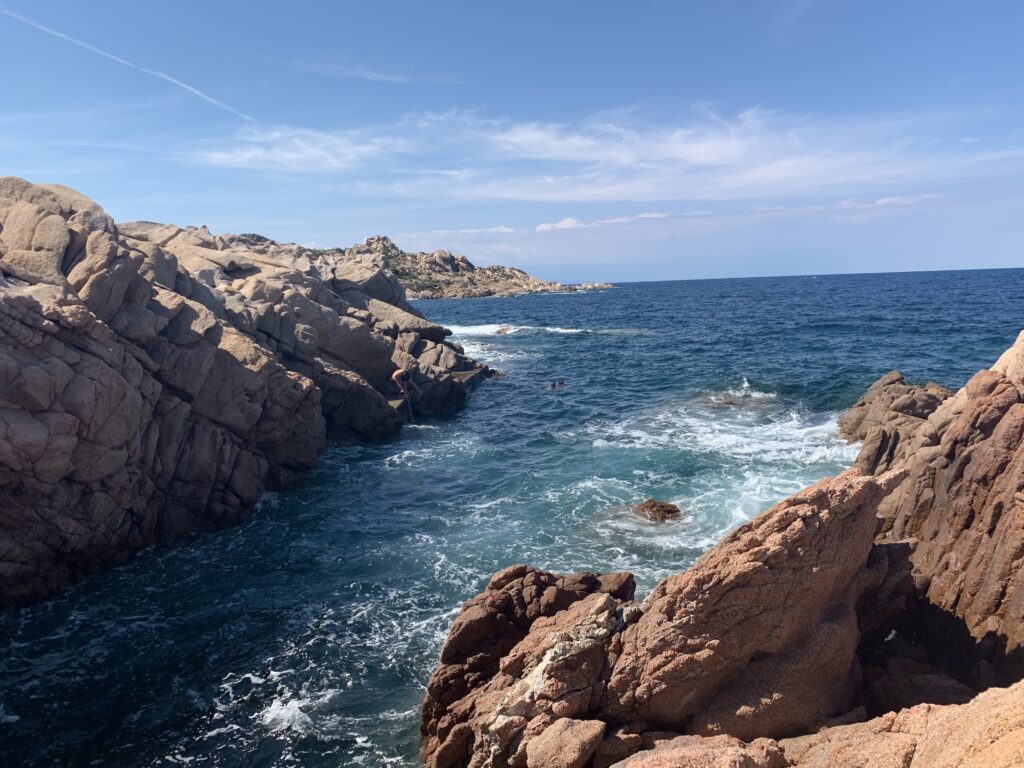Fifteen in the Mist

The early spring mist of morning floated slowly past my window. I felt the delicious sensation of that deep rest that only comes from a wondrous long night’s sleep after a transatlantic trip. This was the first transatlantic trip of my life.
I was 15 years old and traveling to Italy with my high school Latin club. The school sent a group of kids every year, and this year it was my turn.
I had dreamed of this trip for many years, from the moment I had first learned that my grandparents were from Italy. I had read about Italy in any book or cookbook I could find, I had studied Latin, I had studied Italian, I had studied Roman history. I had watched any Italian or even European movie I could find, trying to get a sense of the homeland. Even Spanish movies got me closer.
The school trip enticed us for months prior with its promise of ancient lands, historic peoples, and a whiff of modern Europe.
We had arrived from New York into Milan the day before, and spent a hazy afternoon taking a motorcoach south into Tuscany. Our hotel was in the countryside outside Florence. New, blocky and modern, it represented a perfect balance of economy and convenience for our forays into the heart of Florence, and stuck out like the new kid against the traditional stone and terracotta farmhouses.
It was too early for breakfast that first morning, but a few of us were awake and eager to explore anything around us that was Italy. And it was all Italy, pulsing and throbbing in its Italy-ness.
“Let’s take a walk! Let’s take a walk!,” we whispered to each other excitedly.
We dressed quickly in our de rigueur faded blue jeans and exited the hotel, four of us together. We found a dirt road leading away from the main road.
Our tennis shoes were probably more suited for city streets than unpaved country roads lined with Tuscan cypresses and long bristly grasses. But we glided along silently, the road’s terminus obscured in the fog. Not knowing what to expect from the walk or the day or the trip, we felt we were embarking on an almost holy experience: our first morning in Italy. Would it bring us everything we anticipated?
Years before, my Italian grandmother passed several months bedridden at my aunt’s house in America. She was dying but we didn’t know it yet. In the months leading up to her death, our visits to see her were carefully orchestrated.
We would be carefully brought into her bedroom, only one at a time so as not to cause too much chaos or excitement. When it was my turn, I sat on the designated chair at the foot of her bed. She must have been in so much pain and discomfort, but she wanted to see us, she wanted to ask us the regular questions, how is school, are you doing your homework, are you playing sports. She was trying to connect with us, but those interactions felt empty and clinical, neither of us was talking about what we really wanted to talk about.
I wish now I had felt the confidence to ask her the questions I should have asked, the questions I would ask her now, instead of just responding like a meek puppet. I wish I had asked what she remembered of her own Italian grandmother in Italy, the mysterious Francesca, who had been abandoned as a newborn in the wheel of a convent wall, who went through life with four simultaneous surnames, and whose ring we still possess today. I wish I had asked her about the house they had lived in in Italy, about the games they had played as children, about the ship that had carried them across the ocean, about her first impressions of New York City where she studied and worked.
On that first trip to Italy, when I was fifteen, I visited some of my grandmother’s relatives in Rome. I felt the same sensation with them that I had felt at her sickbed. That I was scratching the surface of a million ancient unknown stories that I didn’t know how to properly ask about. A million hidden doors and I didn’t know where to begin or which to open. Behind those door was a world that had been known and then lost. I was missing the right words because I was missing the history.
I visited Roman friends of my mother’s, and ironically there I felt more at home. Kids my own age, terraces that hung above the murmuring eternal panorama of the ancient city, drinking peach juice for the first time in my life, a miraculous revelation, the thick fuzzy droplets slowly sliding back down the inside of the glass.
After Rome, our school group proceeded south to Naples. We stayed at a gloomy academy of classical and scientific studies near Cumae, an ancient Greek colony. The prophetess Sybil had held court there in the days when Greece ruled Italy. She counseled passing travelers and kings on future strategies.
Some of the kids went down and entered the actual grotto where the Sybil had worked. Others of us stayed above, sitting on a stone wall by the roadside, swinging and kicking our legs. We waved at passing cars who honked at us. We were becoming good at this traveling in Europe thing, we were learning the ropes well. It seemed we could do this successfully forever.
The academy’s scientific collection had jars with brains, jars with hearts. We slept on beds lined up next to each other. In the middle of the night, I could not avoid a trip to the bathroom, fumbling blind in the dark to not run into the cots that ate up space even in the common room, to not overturn some glass jar rendered invisible by the gloom. The dormant energy of sleeping adolescents clashed with the spooky vibe of already dead things floating in jars, and the palpable legacy of ancient peoples and legacies.

Our trip was suddenly ending too soon. There was a night in Sorrento on the coast and a day trip to Capri, where the overloaded ferry captain at first refused us passage to the mainland. Our tiny blonde Latin teacher threw a fit, impressing us with her rudimentary, impassioned Italian which matched his own obstinance in intensity.
“Non è giusto! Non è giusto!”, she cried. “It’s not right! It’s not right!”
They had sold us tickets and could not refuse us the trip. She won the clash. I watched as the rocks close to shore slid away from us under a clear, cold, blue green sea and the ferry carried us back to Naples.
And then the last night of our trip in Rome. Everyone chose their own frenetic final dash, breaking up into small informal groups. Some set out to buy souvenir gifts, or see the last possible sight, perhaps the Mausoleum of Augustus, or perhaps just the spectacle of the evening passeggiata. We watched the Romans watch each other, streaming along in their impossibly cool elegance.
Back on American soil in New York, we blinked strangely at the highways around us. In our old familiar homes nothing seemed the same. I don’t know if everyone felt like me, but I was changed. I started drinking coffee in the morning because caffé latte had become a habit during our time in Italy. I began plotting how and when I could get back to Italy. Italy had always been the seed of an idea that I had nourished with books and dreams, but now that that seed had absorbed Italian sunshine and Italian nourishment, it began to flourish and grow much stronger. As it turned out, I would be back the following year.
